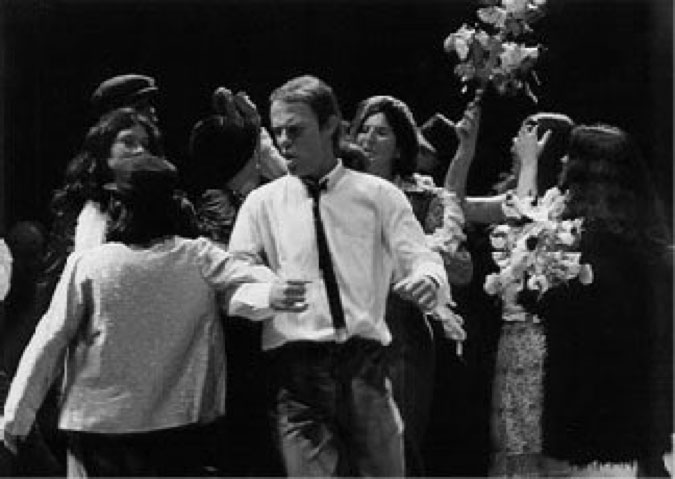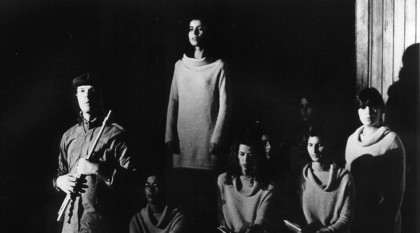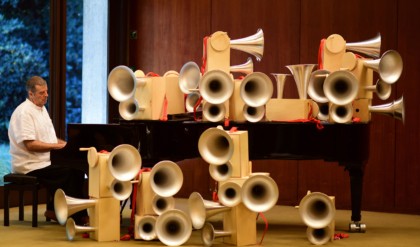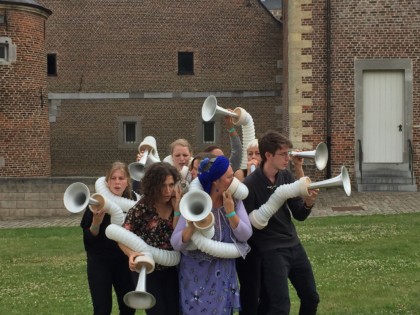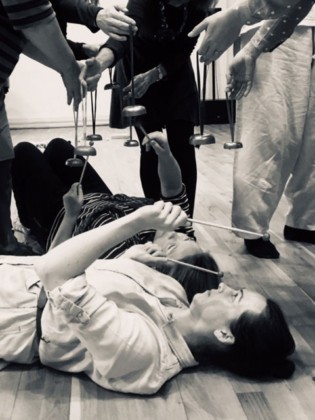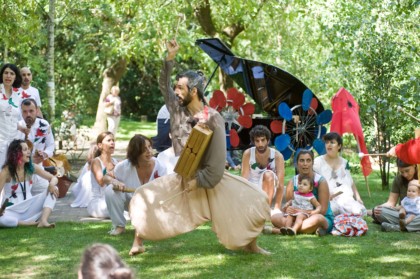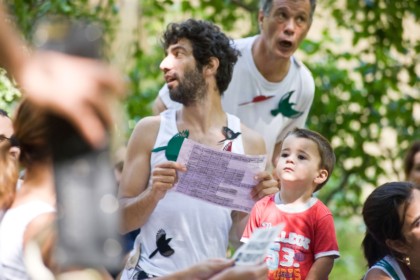The duality/conflict between contemporary urban and rural landscapes in the literary work “A Cidade e as Serras” (The City and the Mountains) by Eça de Queiroz was the starting point for this work. The issue also arose in other places, particularly Invisible Cities by Italo Calvino, which inspired “As Cidades e a Serra” (The Cities and the Mountain) to visit imaginary places.
Places dreamed in sound, spaces of human interiority. Faced with the dilemma of putting down roots or not, in the face of conflict between popular and academic knowledge, the imagination emerges as a possible refuge from displacement and estrangement. Or rather, it wanders though the transience of real places; the only fixed point relates to fictional architecture.
This is how the show is built, from original compositions made with sounds collected from soundscapes in Portugal and London and collages of works originating in soundscapes (Cries of London by Gibbons, Welkes and Berio and Cries of Paris by Janecquin). “As Cidades e a Serra” also integrates traditional Portuguese music arranged by Paulo Maria Rodrigues, Fernando Lopes-Graça and Eurico Carrapatoso.
The show arises from the convergence of the work of Coro de Câmera choir in conjunction with choreography by António Tavares and visuals by Pedra Sena Nunes. Complementing Eça’s book, “As Cidades e a Serra” doesn’t present a narrative or a solution to the conflict between rural and urban, nature and technology, simple and complex, popular and academic. So it is not about living in Paris or Tormes. It simply wanders between the transience of sound, body and image. We are traveling. We are passing through.
